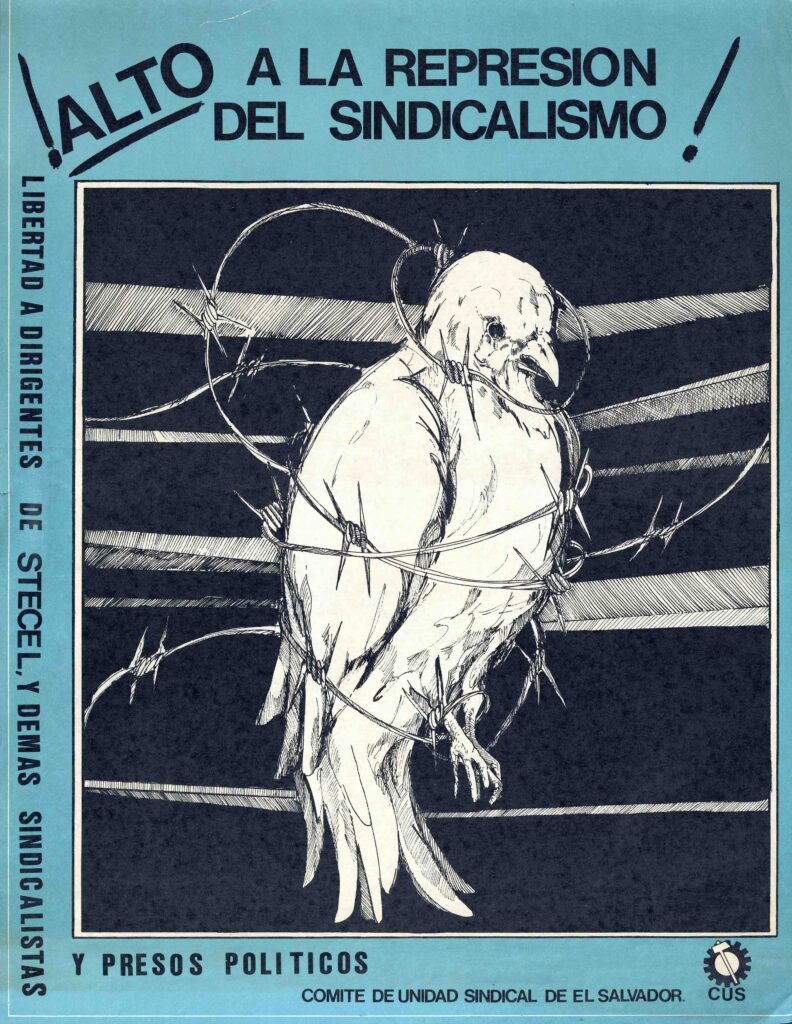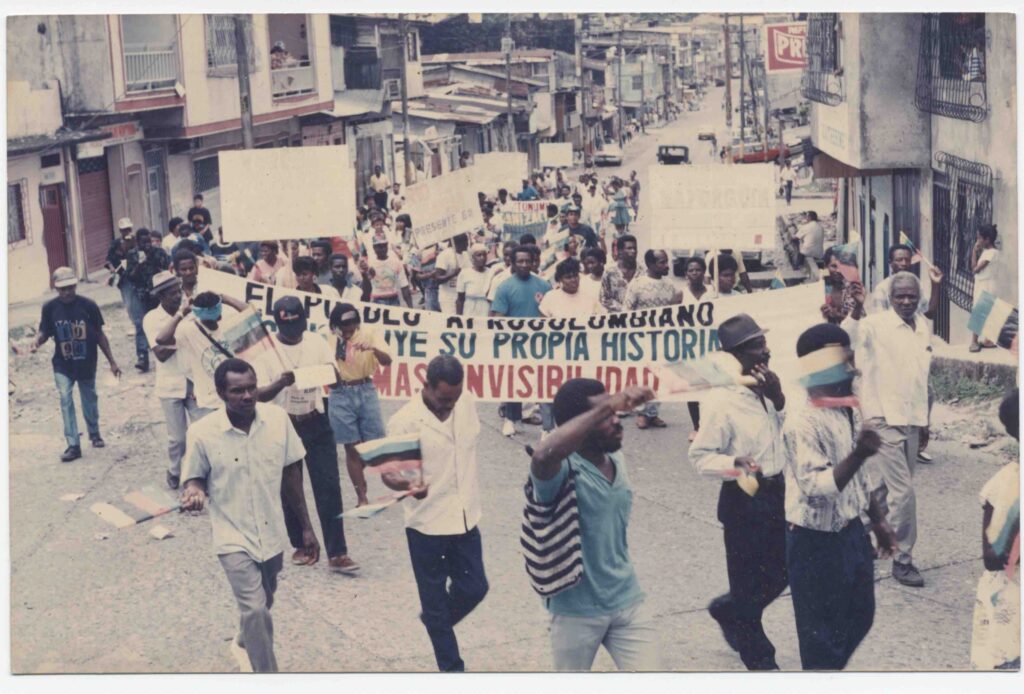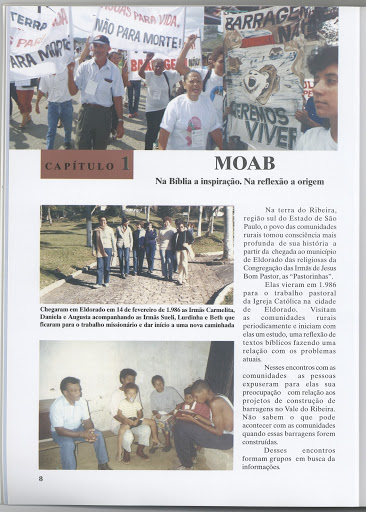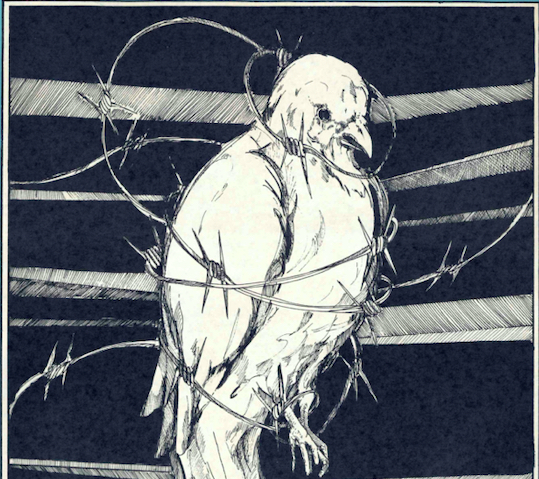Leer en español / Ler em português
BY DAVID A. BLISS
More than 60 thousand scanned images from seven archival collections throughout Latin America are now available online in the updated Latin American Digital Initiatives (LADI) repository (ladi.lib.utexas.edu). The site was developed over the course of two years by the LLILAS Benson Digital Initiatives team and University of Texas Libraries software developers, with support from the Andrew W. Mellon Foundation. A previous version of the site, featuring four archival collections, launched in 2015.

The digitized images in the LADI repository were created by archive-holding organizations in Latin America in partnership with LLILAS Benson. Partnering organizations produced high-quality scans and detailed metadata about their collections, while LLILAS Benson staff offered equipment, on-site training, and technical consultation under a post-custodial archival framework. The online repository is intended for use by researchers, teachers, and activists, as well as the communities to which the materials belong. The site can be navigated in English, Spanish, and Portuguese.

The collections found in LADI span the sixteenth through the twenty-first centuries, and were created by project staff at the following partnering organizations: Archivo Judicial del Estado de Puebla (Mexico), BICU-CIDCA (Nicaragua), Centro de Investigaciones Regionales de Mesoamérica (CIRMA, Guatemala), Equipe de Articulação e Assessoria às Comunidades Negras do Vale do Ribeira (EAACONE, Brazil), Museo de la Palabra y la Imagen (MUPI, El Salvador), and Proceso de Comunidades Negras (PCN, Colombia). The variety of materials found in these collections reflects the ethnic and social diversity of Latin America. At the same time, the collections speak to common struggles that reach across temporal and geographic boundaries. The particular thematic strengths of the collections in the repository include Afro-Latinx and Indigenous rights, environmental justice, and Cold War–era internal armed conflicts. The collections are:
- Archivo de Inforpress Centroamericana (CIRMA, Guatemala)
- Colección Conflicto Armado. Afiches. (MUPI, El Salvador)
- Colección Conflicto Armado. Publicaciones. (MUPI, El Salvador)
- Colección Digital del Periódico “La Información” (BICU-CIDCA, Nicaragua)
- Colección Digital Fondo Real de Cholula (Archivo Judicial del Estado de Puebla, Mexico)
- Colección Dinámicas Organizativas del Pueblo Negro en Colombia (PCN, Colombia)
- Quilombos do Vale do Ribeira SP/PR (EAACONE, Brazil)

MOAB – A Saga de um Povo [MOAB – The Saga of a People]. From the Quilombos do Vale do Ribeira SP/PR collection, Equipe de Articulação e Assessorias às Comunidades Negras do Vale do Ribeira, Eldorado, Brazil. https://ladi.lib.utexas.edu/en/eaacone01
About the Site Update
The new version of the site was built from the ground up using an open-source technology stack consisting of Fedora 5, Islandora 8, and Drupal 8, based on the Resource Description Framework (RDF) for linked data. The updated repository infrastructure greatly improves the site’s multilingual capabilities and provides more connections between objects to improve cross-searching and discoverability. The site was developed using a combination of standard Islandora features and custom code, which was contributed back to the Islandora community.
![Avalúo de los bienes de Manuel Romero [Appraisal of the assets of Manuel Romero]. Colección Digital Fondo Real de Cholula, Archivo Judicial del Estado de Puebla: https://ladi.lib.utexas.edu/en/frc01](https://texlibris.lib.utexas.edu/wp-content/uploads/2020/06/Cholula.jpg)
The core project team consisted of David Bliss, Itza Carbajal, Minnie Rangel, Brandon Stennett, and Theresa Polk. The LLILAS Benson Digital Initiatives team would also like to acknowledge the contributions of the many others who supported this project, including the project staff and leadership at each partner organization; scholar liaisons Dr. Anthony Dest, Dr. Lidia Gómez García, Dr. Kelly McDonough, and Dr. Edward Shore; translators Tereza Braga, Jennifer Isasi, Joshua Ortiz Baco, and Albert Palacios; UT Libraries IT services; the UT Libraries Digital Stewardship team; LLILAS Benson Grants Manager Megan Scarborough; the UT Libraries and LLILAS Benson leadership teams; the Andrew W. Mellon Foundation; the Islandora development community; and the graduate research assistants who contributed to the project—Alejandra Martinez, Joshua Ortiz Baco and Elizabeth Peattie.
David A. Bliss is the digital processing archivist for LLILAS Benson Latin American Studies and Collections, The University of Texas at Austin.

